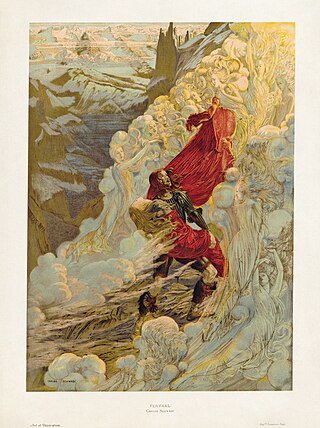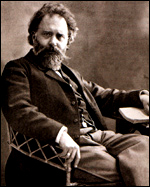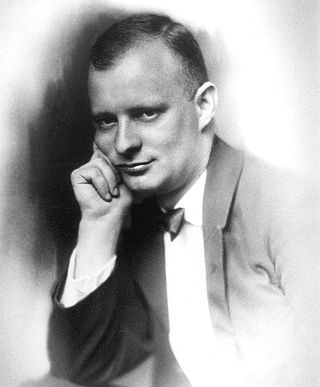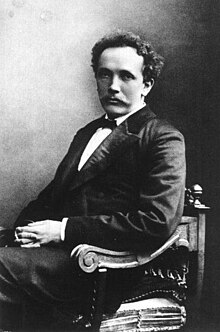
Richard Georg Strauss was a German composer and conductor best known for his tone poems and operas. Considered a leading composer of the late Romantic and early modern eras, he has been described as a successor of Richard Wagner and Franz Liszt. Along with Gustav Mahler, he represents the late flowering of German Romanticism, in which pioneering subtleties of orchestration are combined with an advanced harmonic style.

Dantons Tod is an opera by Gottfried von Einem to a libretto by Boris Blacher and Gottfried von Einem after Georg Büchner's 1835 play of the same name. Its first performance took place in Salzburg on 6 August 1947. It was revised in 1955.

Sigurd is an opera in four acts and nine scenes by the French composer Ernest Reyer on a libretto by Camille du Locle and Alfred Blau. Like Wagner's Ring of the Nibelung, the story is based on the Nibelungenlied and the Eddas, with some crucial differences from the better known Wagnerian version. The whole opera can best be described as an epic with techniques of the grand opera.

Fervaal, Op. 40, is an opera in three acts with a prologue by the French composer Vincent d'Indy. The composer wrote his own libretto, based in part on the lyric poem Axel by the Swedish author Esaias Tegnér. D'Indy worked on the opera during the years 1889 to 1895, and the score was published in 1895.

Elegy for Young Lovers is an opera in three acts by Hans Werner Henze to an English libretto by W. H. Auden and Chester Kallman.

Cornelis 'Kees' Dopper was a Dutch composer, conductor and teacher.

Pauline Maria de Ahna, also known as Pauline Strauss, was a German operatic soprano and the wife of composer Richard Strauss. Her singing career was closely tied to her husband's career as a conductor and composer. From 1890 until 1894 she was committed to the Staatskapelle Weimar and from 1894 until 1897 she was committed to the Bavarian State Opera, during which times her husband was the principal conductor of those theaters. She also sang with her husband conducting at the Bayreuth Festival and in the world premiere of his first opera Guntram. Other houses at which performed included the Berlin State Opera, La Monnaie, and the Liceu. Her repertoire included leading roles in the operas of Beethoven, Humperdinck, Mozart, von Weber, and Wagner. After she gave birth to their son Franz Strauss in 1897 she retired from the opera stage. She thereafter continued to periodically perform in concerts of her husband's music, particularly Lieder. Strauss credited her as his muse for many of his compositions, including the title role in Salome, the Countess Madeleine in Capriccio, and the Four Last Songs among others.

Olimpie is an opera in three acts by Gaspare Spontini. The French libretto, by Armand-Michel Dieulafoy and Charles Brifaut, is based on the play of the same name by Voltaire (1761). Olimpie was first performed on 22 December 1819 by the Paris Opéra at the Salle Montansier. When sung in Italian or German, it is usually given the title Olimpia.

Pénélope is an opera in three acts by the French composer Gabriel Fauré. The libretto, by René Fauchois is based on Homer's Odyssey. It was first performed at the Salle Garnier, Monte Carlo, on 4 March 1913. The piece is dedicated to Camille Saint-Saëns.
L'attaque du moulin is a drame lyrique (opera) in four acts by the French composer Alfred Bruneau. The libretto, by Louis Gallet with the collaboration of Émile Zola, is based on a short story by Zola. Zola's story is about the Franco-Prussian War, but the setting of the opera was changed to the period of the French Revolution.

Der Evangelimann is an opera in two acts by the Austrian composer Wilhelm Kienzl. The libretto, by the composer, is based on Leopold Florian Meissner's short story "Aus den Berichten eines Polizeikommissärs". It was adapted in 1924 as a silent film The Evangelist.

Mörder, Hoffnung der Frauen is an opera in one act by Paul Hindemith, written in 1919 on a German libretto by Oskar Kokoschka which he based on his play of 1907. The opera was the first in a triptych of expressionist one-act operas, the others being Das Nusch-Nuschi, and Sancta Susanna. They were the first operas written by Hindemith. The first two were premiered together in Stuttgart on 4 June 1921, all three were performed at the Oper Frankfurt in 1922.

Prométhée, Op. 82, (Prometheus) is a tragédie lyrique in three acts by the French composer Gabriel Fauré with a French libretto by the Symboliste poets Jean Lorrain and André-Ferdinand Hérold (1865–1940). It was partly based on the opening of the Greek tragedy of Prometheus Bound. The first performance at Arènes de Béziers on 27 August 1900 involved almost 800 performers and was watched by an audience of 10,000. Between 1914 and 1916, Jean Roger-Ducasse reworked the score for a reduced orchestra. This version made its debut at the Paris Opéra on 17 May 1917 but never became popular.

Hulda is an opera by César Franck to a French libretto by Charles Grandmougin. It is set in 11th-century Norway, and is based on the play Lame Hulda (1858) by Norwegian writer Bjørnstjerne Bjørnson. The complete opera contains a prologue, three acts and an epilogue, albeit the world premier recording by Naxos has five acts. It was composed between 1879 and 1885.

Ritter Pázmán is a three-act opera composed by Johann Strauss II, with the libretto by Ludwig Dóczi. It premiered at the Hofoper in Vienna on New Year's Day in 1892. It is based on a Hungarian narrative poem, Pázmán lovag, by the Hungarian poet János Arany. A performance takes about three hours.

Antigone is an opera in three acts by Arthur Honegger to a French libretto by Jean Cocteau based on the tragedy Antigone by Sophocles. Honegger composed the opera between 1924 and 1927. It premiered on 28 December 1927 at the Théâtre Royal de la Monnaie with sets designed by Pablo Picasso and costumes by Coco Chanel.

Medea is an opera in three acts composed by Giovanni Pacini to a libretto by Benedetto Castiglia. It premiered on 28 November 1843 at the Teatro Carolino in Palermo, conducted by the composer with Geltrude Bortolotti in the title role. The libretto is based on the plays Medea by Euripides and Médée by Pierre Corneille.

Issé is an operatic pastorale héroïque by the French composer André Cardinal Destouches. Initially it was in three acts. The definitive revised version consists of a prologue and five acts. The libretto was by Antoine Houdar de la Motte. Although Destouches was only 25 at the time of its premiere, it is considered his best score.
Der Sturm is a German-language opera in three acts and an epilogue by the Swiss composer Frank Martin to a libretto based on the Schlegel/Tieck German translation of Shakespeare's The Tempest.

















